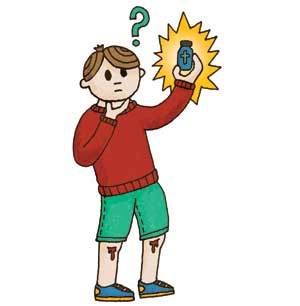
1. Sunday Mornings
Our Sunday mornings are sacred. There is no set order of service, but it typically features a leisurely family breakfast in our pyjamas, with newspapers and lots of coffee. My enjoyment of unscheduled Sunday mornings is undoubtedly related to my religious upbringing – in much the same way as I still take pleasure in not doing exams every year when June comes around. I calculated that in the decade between the ages of 5 and 15 alone, I wasted over 2,000 hours in prayer or going to church. That’s a lot of time I can now spend more fruitfully, reading and enjoying my loved ones (or breaking up sibling fights, but let’s ignore that for now.)
2. Ceremonies
Any excuse I get, I love to celebrate. Birthdays, anniversaries, Christmas, Halloween or Easter, and of course baby-namings. Godlessness means that all these celebrations are our own – reflecting our own values, interests and passing whims. They mirror us – who we are and who we want to be. Anyone who has experienced both church baptism and a humanist naming ceremony knows that the former is all about the church and the latter is all about the new child and its family. For humanists, nothing is celebrated through obligation or through unthinking repetition. Ceremonial celebration is personal, wholehearted and infinitely more child-friendly than a church.
3. Moral reasoning
Firstly, we godless people are significantly freer from hate than our religious counterparts. We don’t burn down churches or strap bombs to ourselves. We don’t start wars or displace peoples. We are also more tolerant, less homophobic, less chauvinistic and more supportive of women’s rights. Our morality is not based on fear of punishment or expectation of reward. Nor do we simply obey the orders of someone in “moral” authority. Our ethics are based on principle rather than commandment, the unfortunate double-edge of this particular sword being that the kids are far too damned skilled at philosophical debate.
4. Crucifixes
Crucifixes gave me the creeps even – or perhaps especially – as a child before I rejected belief in God. They stared me down in churches, accused me from the walls of my classrooms and glared at me in my granny’s kitchen. Or so it felt. The grotesque and disturbing imagery of a man being brutally murdered, complete with gory wounds and a crown of thorns, has no place in my day-to-day life or that of my children. Happily for me, my life is now crucifix-free.

5. Tricky questions
Kids are famous for asking questions – awkward ones, silly ones and brain-melting ones. But have you ever paused to consider the challenges facing the religious parent? Imagine the mental gymnastics and the downright lies required to uphold the stricter sort of prudish, anti-scientific religious orthodoxy. A glance online reveals the panic-fuelled pious, sharing tips on how to avoid answering “unsuitable” questions, and how to quash the challenging of religious truths. We humanists encourage questioning – even, and especially, when we don’t know the answers. I am eternally grateful that I will never have to try to explain why God wanted someone’s kitten to die.
6. Gratitude
Gratitude is a definite contender for any list of core humanist virtues. The appreciation of the human effort and drive behind everything, from scientific progress to the making of our dinner, is instinctive to humanists. Moreover, recent studies tells us that gratitude is also linked to happiness levels and positive psychology. Aren’t we lucky, then, to be free to correctly identify the people deserving of our gratitude rather than lazily thanking a god instead? If I cook for you and you thank a deity in heaven for my work, you might just end up wearing your dinner. How often do the religious thank God for recovery from illness rather than thanking the doctors, nurses and scientists? But why stop there? Tell the kids about the contributions of Pasteur and Fleming, Hippocrates and Galen.
7. Sexuality
The “shamefulness” of sexuality is a feature of nearly every world religion. Happily for us, we’re free from this tangled web of sin and temptation, fear and judgment. It’s not that discussion of sexual topics isn’t sometimes cringeworthy for humanist parents too, but thankfully the mere raising of the topic doesn’t send us teetering on a tightrope over the fires of hell. Sexual coming-of-age is difficult enough without being told that “God knows what impure thoughts you’re thinking”, that “masturbation will make you blind” or that “being gay is an abomination”. Sexuality is part of our humanity. It is natural and healthy and pleasurable. And when it is also respectful, what more do you need?

8. Intellect
My seven-year-old son was recently given some holy water from Lourdes by a misguided but essentially well-meaning adult. She explained to him how the water would bless him and keep him safe, and even suggested it had healing capabilities. It was super-dooper-ultra-holy water, fresh from Lourdes, after all. My son was fascinated. Within minutes, he had devised an experiment. As it happened, he had a cut on both knees. If he splashed one with holy water and left the other one, which would heal quicker? “What if it doesn’t work because you don’t believe in it?” I ventured. “I could ask Mrs X (the woman who had given it to him) if she has some cuts too?” he reasoned. I compare his razor-sharp reason with my airy-fairy fluffiness at the same age and am so glad to be raising my children without the intellect-stifling supernatural.

9. Faith in humanity
Religiosity is built on the extremely negative assumption that humans are nasty, selfish, violent creatures, unless our evil human nature is tamed and subjected to external control via holy books, laws and the threat of an eternal grilling. Without scripture, according to religious people, we would all be out raping and pillaging the neighbourhood. Why wouldn’t we? I am glad to know what humanity is, and what goodness humans are capable of, given self-respect, love and education.
10. One life
We have a postcard on the wall at home that reads “Enjoy your life. It might be your last.” For me, this sums up the immediacy that godlessness brings to the life we are living. Our focus is on the here-and-now – on living this life well, not obsessing about our death and what comes after it. Your mission, should you choose to accept it: to engage with this world and to try to affect it positively – through respect and learning, through love, creativity and fun. And, crucially, to have a stonking good time in the process.

